Create all conditions for access to capital and land
Vietnam currently has 5 million business households, creating jobs for tens of millions of workers, contributing up to 30% to GDP, and is an extremely important economic stream. For the first time, business households (HKD) and micro-enterprises are specifically mentioned in a Party Resolution with the viewpoint of "substantially and effectively supporting small, micro-enterprises and HKD".
Specifically, Resolution 68-NQ/TW requires reviewing and perfecting the legal framework for individual businesses; promoting digitalization, transparency, simplification, ease of compliance, ease of implementation for accounting, tax, insurance regimes... to encourage the conversion of HKD to operate under the enterprise model. Eliminate lump-sum tax for HKD by 2026 at the latest.
In addition, provide free digital platforms, shared accounting software, legal consulting services, training on business administration, tax, human resources, law for small and micro enterprises, business households, and individual businesses; At the same time, there is a mechanism to connect information between banking systems, taxes and relevant agencies to be able to assess the creditworthiness and credit score of enterprises, on that basis, increase lending to small and medium enterprises and business households. In addition, there are many support mechanisms for small and medium enterprises, ensuring that all enterprises have a "launching pad" to become bigger than they are now.
Ms. Doan Luong - Director of Doan Luong General Processing and Trading Cooperative (HTX) said that the new policies stated in Resolution 68 and specified through the Government 's implementation plan for Resolution 68 are of great significance and are very helpful for businesses. First of all, we must mention the policy on corporate income tax exemption and reduction. This is extremely meaningful and important to help businesses reduce operating costs, because the investment and business process takes a while to reach the break-even point. This encourages businesses to invest in innovation, creating motivation to increase productivity and develop core technology.
In addition, the policy of exempting or extending land rent is expected to reduce the burden of fixed costs, creating conditions for start-up businesses to have offices and factories; Prioritizing access to land in industrial parks, helping businesses have a modern working environment, favorable for connection and cooperation; at the same time, having the opportunity to access capital sources and credit policies, helping weak businesses easily borrow capital to develop and expand their scale; Simplifying procedures, helping businesses focus on expanding the market, focusing on product development...
Mr. Nguyen Van Huynh - Chairman of the Board of Directors of Huynh Phat Cooperative also feels extremely excited about the policies that the Party and the State have for small and micro enterprises. In particular, the policy of exempting and reducing land tax is a practical and timely policy. Because for small and start-up enterprises, land rental costs, especially in high-tech zones, are always a big barrier. Being supported with land tax will help them reduce their financial burden, create conditions for accessing production infrastructure and focus more on technological innovation and product development.
“This policy not only supports businesses to survive and develop, but also demonstrates the State’s support for the private economic sector - an important force in innovation and economic growth today. I also hope that, along with land tax incentives, there will be other synchronous policies such as: supporting access to capital, simplifying administrative procedures and developing high-quality human resources so that businesses can truly have the conditions for sustainable development,” said Mr. Nguyen Van Huynh.
Need to implement drastically, clearly and transparently
Recalling the difficulties that small and micro enterprises encountered in the process of implementing the State's legal regulations in starting a business, Mr. Nguyen Van Huynh shared: “In the past, small enterprises like us really encountered many difficulties. High land rental costs while resources were limited made it impossible for us to expand production, and even less daring to invest in new high-tech or innovative models. We had ideas but no conditions to implement them, we had the need to develop but lacked infrastructure.”
 |
Even at times, Mr. Huynh “felt like his business was “tied up”, very passive and out of breath in the competition process”. These barriers have somewhat slowed down the development speed, causing many opportunities for private enterprises, especially young ones, to be lost. Ms. Doan Luong also said that she had encountered many difficulties in accessing capital due to high interest rates and cumbersome and complicated procedures.
Currently, small and micro enterprises all assess that policies are available but putting them into practice is not simple. Ms. Doan Luong believes that in order for mechanisms and policies to exert their power, there must be close coordination and companionship between the state and enterprises. Enterprises also need to proactively, quickly, accurately and promptly access preferential policies, useful information from newly issued legal documents, support programs from the state, from associations, etc.
At the same time, enterprises themselves need to participate in training courses to improve the management and legal capacity of business owners as well as accounting and finance to be able to quickly update preferential policies for enterprises; Standardize records, accounting books, and operational data; Participate in seminars, forums, and dialogue programs between the State and enterprises and always be proactive in terms of capacity and expertise.
Mr. Nguyen Van Huynh also shared that the important thing to realize the support mechanisms and policies that Resolution 68 has put forth is that there needs to be drastic, clear and transparent implementation from all levels of government. Besides, it is necessary to listen to businesses more, promptly remove obstacles and avoid the situation of "hot above, cold below".
“No matter how good a policy is, if it is implemented slowly and without synchronization, it will be difficult to promote its effectiveness. On the business side, we will proactively update information, actively connect with functional agencies and most importantly, be transparent and serious in the process of approaching policies. Businesses cannot wait for policies to come, but must find the right approach, understand correctly and implement correctly, to effectively take advantage of valuable support from the State,” said Mr. Huynh.
Ms. Le Dung - Director of the Institute of Entrepreneurship (and also President of the 1983 CEO Club) said that the policy of promoting HKD to transform into enterprises is in the right direction, but needs to be accompanied by real support from the State and intermediary organizations such as associations, research institutes, and business support organizations.
Ms. Dung gave suggestions for effective implementation during the transition period. Specifically, it is necessary to design an effective transition period that is reasonable with the policies that the State has just granted to this group, such as tax exemption and reduction for the first 3 years after the transition so that they have time to get used to and accumulate internal resources; Reduce initial compliance costs through providing free or cheap basic accounting and legal services from the coordination of public-private organizations...
Many experts believe that many HKDs have not yet assessed the superiority of converting from HKDs to enterprises. In the immediate future, many individuals and HKDs will certainly think that the procedures are more complicated and the legal aspects are more complicated if they convert to enterprises than before. Therefore, it is necessary to have a communication process to change the awareness of HKDs about the "inheritable" model of enterprises, which is quite different from the current HKD model. Accordingly, experts note that HKDs are different from private enterprises. Because a private enterprise is registered by an individual, it is a low-risk business model and can be inherited. When a risk occurs to the business owner, the enterprise can still continue to trade without incurring costs. Meanwhile, individuals and HKDs will be closely tied to one person, if this person encounters a risk, they will not be able to inherit.
Ms. Le Dung - Director of the Institute of Business Intelligence (under the Vietnam - ASEAN Economic Development Cooperation Association): Need to multiply typical examples of "dare to grow" business households
The private economy wants to become an important driving force of the country, which means that a multi-layered support ecosystem is needed, with the support of the State, intermediary organizations, research institutes and the business community. We need to create a humane, transparent, sustainable business environment and create long-term trust, so that not only many businesses can grow, but also contribute significantly to the strong development of the country.
However, if they do not pay attention to improving their leadership capacity, strategy, and risk management, private enterprises can easily “fall behind” even though they have good resources and markets. Therefore, there should be policies to encourage the association of private enterprises with research institutes, universities, and training organizations to develop high-quality human resources.
(To be continued)
Source: https://baophapluat.vn/ky-vong-lua-doanh-nghiep-lon-moi-se-ra-rang-bai-2-buoc-chuyen-de-ho-kinh-doanh-lot-xac-post549922.html



![[Photo] Prime Minister Pham Minh Chinh meets with Hungarian President Sulyok Tamas](https://vphoto.vietnam.vn/thumb/1200x675/vietnam/resource/IMAGE/2025/5/29/dbcaa73e92ea4448a03fe1d0de6d68e8)
![[Photo] Prime Minister Pham Minh Chinh receives a bipartisan delegation of US House of Representatives](https://vphoto.vietnam.vn/thumb/1200x675/vietnam/resource/IMAGE/2025/5/28/468e61546b664d3f98dc75f6a3c2c880)



![[Photo] Vietnamese and Hungarian leaders attend the opening of the exhibition by photographer Bozoky Dezso](https://vphoto.vietnam.vn/thumb/1200x675/vietnam/resource/IMAGE/2025/5/29/94d8ceca5db14af3bf31285551ae4bb3)














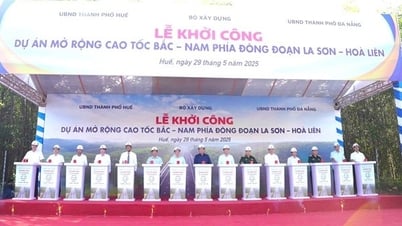






























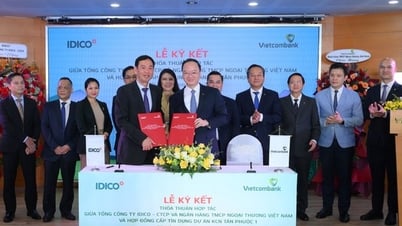







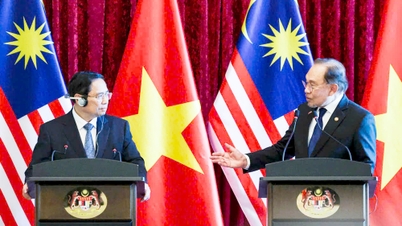



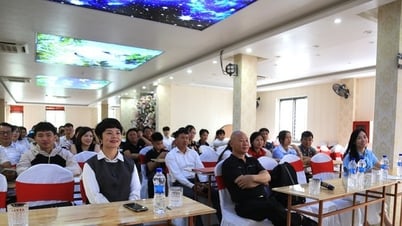







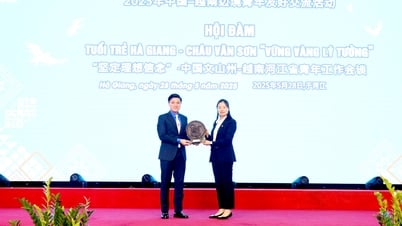

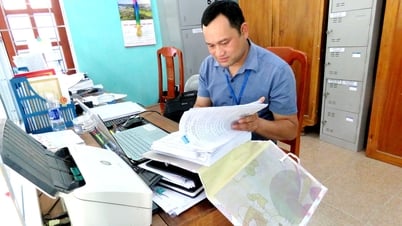
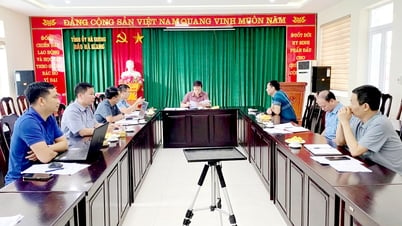











Comment (0)